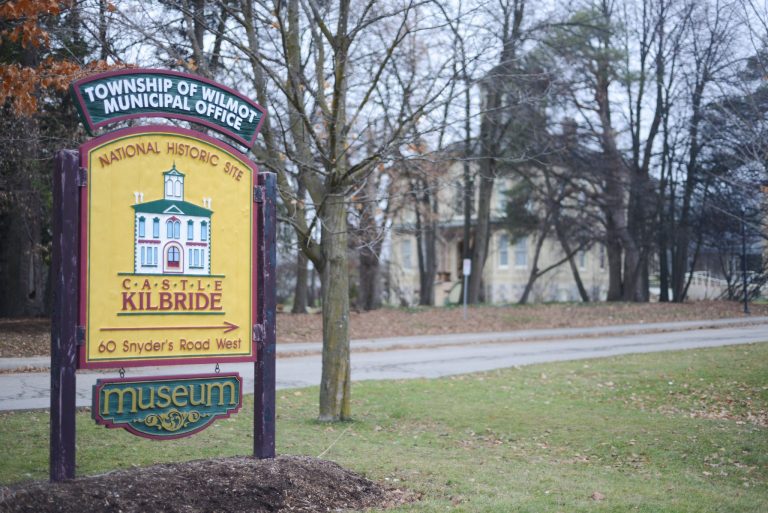In the summer of 2020, a protest was organized that called for the removal of the John A. McDonald statue in front of Castle Kilbride in Baden.
Baden is a suburban community of the Township of Wilmot, which is a part of the Waterloo Region.
The movement to raise awareness about the harms of John A. McDonald was organized by a local indigenous activist.
Activists David Alton and Aashay Dalvi participated in the movement, as they were then living in the Wilmot area.
This was Dalvi’s first experience of the Wilmot area.
“We were educating people on the negative impacts that John A. McDonald has made on Indigenous peoples in Canada,” Dalvi said.
“While I was doing that, I faced a lot of blatant racism. These boys felt confident in telling me go back to where I came from. In front of their parents who were standing across the street.”
After experiencing blatant white supremacy and racism, Dalvi and Alton realized how important it was to have an anti-racism movement in Baden and Wilmot.
Dalvi was the social media liaison for the movement and organizer alongside Alton.
The anti-racism demonstrators experienced much community backlash after the rally, both in-person and online.
“One week after that, the first people to be ticketed, Indigenous community members who had absolutely nothing to do with the creation and planning of this rally,” Dalvi said.
In February 2021, there was plan of Wilmot community members organizing a White Lives Matter protest.
In response to this, Alton and Dalvi were among other Wilmot citizens proposed an Anti-Racism Solidarity movement.
Their goal was to bring people in the community a platform to talk about anti-racism and counter the White Lives Matter rallies.
As an activist of colour, Dalvi always tries to engage with the community through the lenses of collaboration, conversation, communication and compassion.
“We decided to organize we were to the three sections to the rally, there was a virtual rally, an in-car rally and then an in-person rally,” Dalvi said.
Once the anti-racism counter protest occurred many of its participants were ticketed by the Waterloo Regional Police Services.
Both Dalvi and Alton were sent to county and were made to pay $4,000 for organizing the rally.
“Wilmot has made it abundantly clear that we not belong there. I asked her that we do not. Anti-racism is not welcome there. I have been told and reminded repeatedly that I’m not welcome there. I do not belong in Wilmot,” Dalvi said.
For fear of retaliation from the Wilmot community at-large, many who were involved with the initial Anti-Racism movement have since backed out or left the community entirely.
Three of the main city councilors who had anti-racism as a part of their platform faced ongoing harassment during their campaigning.
“All these church leaders and elected officials, were scared into silence, seeing how much the ‘Stronger together’ movement became such an organizing place for harmful conversations to be allowed,” Dalvi said.
The Anti-Racism Solidarity movement of Wilmot is dormant. There are still a few groups that are organizing, but their capacity is small.
Alton wishes all the best to future generations of activists and hopes to support them in doing more.
The Wilmot Anti-Racism Solidarity Movement Facebook group is an active page where members are able to share information about local anti-racist calls to action.
Most recently, the page served as an information hub for the municipal elections.

